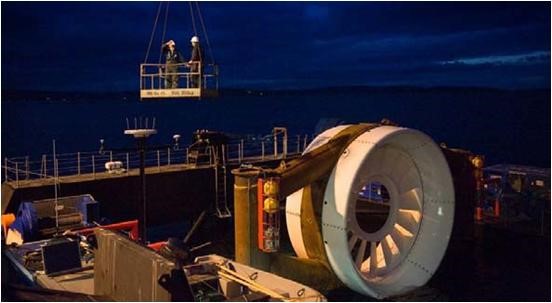MASTER JUSTIFICATION
Although, stricto sensu, Marine Renewable Energies are defined as those energies generated by the ocean, harvesting the power of their waves, currents, tides and, in a smaller scale, thermal or salinity gradient, offshore wind is normally included among them since, although the power comes from the wind, not the sea, the challenges and technologies involved and the supply chain needed are similar. A special case is the floating offshore wind, where naval, oceanic and wind industries merge.
These energies, mostly offshore wind and, in a lower scale, waves and currents are soundly established in Northern Europe and in Australia and are showing clear forecasts of growth in America and in the Far East (China, South Korea, Taiwan, Japan,…). Lately, after a tortuous and long path, the United States has joined the countries that pioneered the sector in a commercial scale at a date as recent as the early years of the 21st century.
Leveraging on a current strong maritime industrial base and the relevant support from many Governments which have the binding commitment sanctioned by the UN’s Framework Convention on Climate Change to increasing the low carbon technologies and reducing the greenhouse gases emissions, this sector shows, year after year, constant growth indexes.
Spain, a country with a huge maritime history and a powerful naval industry and technology, couldn’t afford to be side-lined away from this revolutionary process.
Indeed, Spain, even not having yet the marine renewable energies heavily targeted in our current National Energy Plan, is a world-class leader among the utilities developing Marine Renewable Power Plants, offshore wind generator designers and manufacturers, several wave and current technologies in prototype phase, offshore test sites and testing facilities, design offices for the entire range of specialized vessel that must support the installation and maintenance of the power plants offshore and, last but not least, the industrial supply chain, manufacturing all kind of machinery, structures, systems and devices needed in these offshore developments.
However, these strong companies missed within their technical staffs the right training in the technologies and knowledge that any interaction with the ocean demands.
This Master’s Degree on Marine Renewable Energies Harnessing (MAERM, after its Spanish acronym) that you are taking an interest in is a comprehensive specialized academic training, long time sought-after by the sector, and the first in its type to be taught in Spain.
The program of the Master’s Degree MAERM encompasses all the disciplines in this field, and studies every offshore-specific subject that fills the gap claimed by all companies in the sector.
The more than 40 lecturers in the staff of the Master’s Degree MAERM are senior professionals, coming from Universities, Institutes of Technology and some of the most relevant offshore renewable companies, and all of them are specialized in one or several of the 94 lectures offered.


